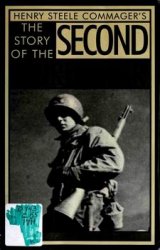Given the basic structural weaknesses in the Western system, which way would the Soviets go? Would the Kremlin try to exploit NATO’s vulnerabilities by pursuing a forward policy in Central Europe or would it seek instead to stabilize the existing system? As the Soviets grappled with this question, they were pulled in more than one direction. The USSR, to be sure, clearly had a certain interest in expanding its influence in Western Europe. The Soviets would obviously not be upset if the countries there had to live more in the shadow of Soviet power - if the Europeans, that is, had to be more sensitive to Soviet wishes, more accommodating politically, militarily, and economically. The USSR might therefore want to "Finlandize" Western Europe - that is, draw that part of the world, to one degree or another, into the Soviet orbit.
This kind of thinking did, in fact, play a certain role in shaping Soviet policy, especially on the German question, and above all on the German nuclear question. The Federal Republic, clearly, was to have a special status in this area. Not only, in the Soviet view, would West Germany not be allowed to develop a nuclear force of its own. Not only would it not be allowed to participate in any sort of NATO nuclear force, even a force that was something of a charade - a force, like the MLF, explicitly designed to prevent that country from getting its finger on the nuclear trigger. But the Germans, ideally, would not even be allowed to take part in NATO nuclear planning. And later on, in the post-1979 period, Soviet leaders strongly objected to the stationing of medium-range American missiles in Western Europe, including West Germany, even though Soviet missiles had been targeting that area for years. In their view, they had a certain droit de regard over that whole region, especially where defense issues were concerned.
And the Soviets could achieve those general goals, in principle, by building up their military power. During the Brezhnev period (1964-82), the Soviets made an enormous effort in this area, steadily building up their forces at every level - strategic nuclear, theater nuclear, and conventional - and straining every muscle to do it. The defense burden was very high: defense spending accounted for a much higher share of the national income than it did in the West.
Observers in the West were bound to ask why the USSR was making that kind of effort. If detente was "truly the Soviet purpose in Europe," one analyst wondered, "then why the steady and unprecedented military build-up at the same time?"752 The USSR was Clausewitzian to the core: military forces were of value, in large measure, because of the political shadows they cast. If the Soviets were making a major military effort, then presumably this was because they had some major political purpose in mind. And what could that purpose be if not to deepen Soviet influence in Western Europe?
But while the temptation to push ahead in Europe clearly played a certain role, it was not the only factor that entered into the equation. There was, in fact, a whole series of reasons why the Soviet Union might be expected to pursue a less ambitious policy.
First of all, if one were trying to predict the course of Soviet foreign policy, the basic character of the regime would certainly have to be taken into account. Over the years, the USSR had lost most of its revolutionary elan. By the 1970s, the regime had become heavily bureaucratic and conservative, and this was bound to affect the way the Soviet leaders dealt with other countries.
The Soviets, moreover, had a lot to worry about at home. "The Soviet economy," as one scholar put it, "seemed to be gradually running out of steam, being dragged to stagnation and decline by some inexorable underlying process."753 American analysts at the time had the sense that a "crisis" was beginning. From the 1960s on, the Soviet leadership itself was receiving "confidential reports critical of the economy’s performance."754 But those warnings were ignored: the regime seemed unable to deal with the problem. The impact on Soviet foreign policy was enormous. Not only was the selfconfidence of the regime shaken, but the Soviets now had to worry more about the USSR’s long-term ability to sustain a costly military rivalry with a coalition of much richer and more technologically advanced powers. Consequently, Soviet leaders were under greater pressure thus to avoid actions that might provoke a massive increase in US defense spending. Because of the economic problem, they had a greater incentive to ease tensions with the West, especially since that might help them get access to Western technology and credits, which were particularly important given the nature of the economic problem they faced.
Geopolitical factors, especially the conflict with China, were bound to loom large in Soviet thinking. If the Chinese were hostile, the Soviets would obviously want to improve their relations with the West. The Soviet leadership had a certain interest in getting the United States to side with the USSR in its conflict with China, or at the very least in preventing the Americans from forming a de facto alliance with the Chinese. But to have any chance at all of achieving those goals, they would have to pursue a relatively moderate course of action in other areas, above all in Europe.
The Soviets, in other words, might be tempted in such circumstances to think in terms of a US-Soviet "condominium," and that kind of thinking might have had a certain bearing on how specific political issues, and especially European issues, were approached. They might, for example, be attracted to the idea of a divided Europe, with the USSR controlling the east and the Americans and their friends controlling the west. An American withdrawal from Europe might lead to some kind of European nuclear force and thus possibly to a German finger on the nuclear trigger. It might be better, therefore, to keep the Americans in, so that West Germany could be contained in a structure dominated by American power. Even a Germany unified under Communist rule might not make much sense from the Soviet point of view, given what had happened with China. "We don’t need a united Germany at all," Soviet foreign minister Andrei Gromyko told one of his advisers in 1977, "not even a socialist one. The united socialist China is enough for us."755
So the Soviets were pulled in both directions: toward exploiting the position they had acquired and toward reaching an accommodation with the West. Which way would they go? The answer might depend to a certain degree on decisions the Western governments made - above all on the policies pursued
By West Germany and the United States. How did those governments try to deal with the USSR during this period, and what effect, if any, did their policies have on Soviet behavior?
What effect, in particular, did the German Ostpolitik, certainly one of the most important developments of the period, have on the way the Soviets struck the balance? The Brandt government began with a policy of accepting the status quo, and few people outside Germany had any problem with that policy. But by 1973, with the ratification of the basic treaty between the two Germanies, the goals that the German government had set for itself in that initial period had been achieved, and the question now was what would come next. And many people, both inside and outside Germany, were convinced, not without reason, that Brandt and his associates wanted to go much further: that they wanted to end the bloc system, dissolve both NATO and the Warsaw Pact, and get both American and Soviet forces out of Central Europe. But with the US troops gone, would Germany really be secure? The Red Army, after all, would not be that far away and paper guarantees were no substitute for military hardware. Brandt and Bahr seemed to reject "Cold War thinking" of that sort. Peace, the argument ran, needed to be based more on trust and less on military power. But that was still a minority view in Germany. The SPD was itself divided on the issue, and its coalition partner, the FDP, would not go along with that policy. And this, it seems, was one of the main factors that led to Brandt’s fall from power in 1974.
What effect did all this have on the USSR? A Soviet hardliner could interpret the Brandt phenomenon - not just the move toward detente, but even more Brandt’s apparent willingness to move toward a "European peace order" in which NATO would no longer exist - as a direct result of the buildup of Soviet military power, as indeed it was to a certain degree. It could be interpreted, in other words, as a good example of "Finlandization" in action. On the other hand, a Soviet leader interested in reaching an accommodation with the West could view the Brandt phenomenon in a very different light - as proving that Germany posed no threat, that a moderate policy was workable, and that there were governments in the West that would cooperate with such a policy. "Without Ostpolitik no Gorbachev!" - that was how a key mid-level Soviet policymaker later put the point.756 But since both arguments could be made and neither was intrinsically more compelling than the other, it is hard to see how the Brandt policy could have played a major role in determining how the Soviets struck the balance.
The same general point can be made about US policy during the Johnson period (1964-68). Johnson wanted peace and was determined, especially toward the end of his term of office, to move ahead, above all on arms control. Non-proliferation was taken quite seriously as a goal, and Johnson also very much wanted to reach a strategic arms-limitation agreement with the Soviets. In 1968, his last year in office, he tried hard to get the arms negotiations started; even the Soviet invasion of Czechoslovakia in August did little to slow him down. The plan for a Johnson visit to the USSR to begin talks on this subject was dropped only after it was made clear to the Soviets in December that the incoming Nixon administration very much disapproved of the idea.
What impact did that policy have on Soviet behavior? Again, one can argue both sides of the issue. On the one hand, with regard to arms control, Johnson in late 1968 focused on strategic weapons - that is, on an area where the stability of the balance was never really in danger. The truly important military questions - above all, those relating to the defense of Europe, an area where there really was a stability problem - did not receive much attention. The administration, in fact, seemed willing to give away the store in what came to be called the "Eurostrategic" area: it was prepared to enter into an agreement that would allow the Soviets to keep the large number of missiles they had targeted on Western Europe, but which would prevent the United States from deploying any missiles of its own on European soil.757 This sort of policy would scarcely deter the Soviets from trying to "Finlandize" Western Europe. If anything, it would have the opposite effect.
On the other hand, Soviet leaders interested in reaching an accommodation with the United States might have reacted positively to the Johnson policy. They might, in particular, have been encouraged by Johnson’s policy of keeping German power limited. The basic idea that the two superpowers had overlapping interests in this area was by no means new. John Foster Dulles himself, despite his reputation as a hardliner, thought that the United States and the Soviet Union had a common interest in making sure that Germany, whether united or divided, was kept under "some measure of external control."758 But under Johnson that attitude was blunter, cruder, and less nuanced than it had been under Dwight D. Eisenhower or even under
Kennedy. And the Soviets could reasonably see that policy as providing the basis for a political understanding between the two superpowers. Again, the policy could cut both ways, and what effect it had in practice would depend on how the Soviets were disposed to approach the general problem of their relations with the West.
Can the same be said of US policy during the Nixon period (1969-74)? In principle, Nixon and Kissinger wanted a world where the major powers, pursuing their interests "rationally and predictably," balanced each other’s power and kept each other in check. The US government would balance between the other great states. It needed to be able to maneuver between the Soviet Union and China; it had to make sure that each of the Communist giants understood it had something to gain from better relations with the United States and something to lose if relations with Washington were to deteriorate.
Thus, the US opening to China, Kissinger later insisted, was not directed against the USSR. The aim was "not to collude against the Soviet Union but to give us a balancing position to use for constructive ends - to give each Communist power a stake in better relations with us."759 That meant that the United States had to pursue a relatively complex and nuanced policy, not too militant, but not too committed to "peace" either. "If the quest for peace,” Kissinger wrote, "turns into the sole objective of policy, the fear of war becomes a weapon in the hands of the most ruthless.”760 The United States should, therefore, be willing to use its power, but in a relatively measured way, in order to bring about the sort of "global equilibrium” that could serve as the basis of a stable international order.761
This, of course, was quite different from the policy Johnson had pursued. Nixon and Kissinger obviously disliked the image of the United States as a "reluctant giant,” "seeking peace and reconciliation almost feverishly.” The Soviets were taking their measure of the United States, and the ability of the US government to influence the sorts of choices the Soviets would be making would depend on the conclusions they reached about the United States. The goal, therefore, was to structure the incentives within which the Soviets would operate - to dangle carrots and brandish sticks, so that when the Soviets made a calculation about the sort of policy that would be in their interest, they would reach what the Americans viewed as the right conclusion.
So that was the theory, and if the policy had actually worked that way, it might have had a major impact on Soviet behavior. The problem was that American policy, as it took shape in practice, was not really cut from that cloth. The US government, during the Nixon-Kissinger period, was not actually interested in balancing between the Soviet Union and China. It was interested instead in balancing against the USSR, by helping China build up its power and by entering into a tacit alliance with the People’s Republic of China (PRC). But that policy, US leaders understood, could not be pursued in a straightforward way. The United States needed to make sure the Soviets did not attack China before it became strong enough to deter the USSR on its own. To do that, the United States not only needed to develop a certain relationship with China; it also needed to try to hold back the Soviets by pursuing a detente policy with the USSR at the same time. The American strategy, as Kissinger told French president Georges Pompidou in May 1973, was "perhaps complex, but it was not stupid." The goal was to "gain time, to

37. US president Richard Nixon meets Chairman Mao Zedong in Beijing, February 21, 1972. Nixon hoped to use China to balance Soviet power.
Paralyze the USSR."762 This, Kissinger admitted (especially in talks with the Chinese), was not a particularly heroic policy, but the US government needed to use such "complicated methods." It needed to "maneuver," not just because of the Soviet threat to China, but also because of its domestic situation, and because of the political situation in Europe as well.763
The United States, Kissinger said, had to engage in a lot of "shadow-boxing," but it was important, he insisted, to "distinguish between appearances and reality."764 The US government had "no illusions about the world today."765 The West, in his view, had to be on its "guard against detente." Indeed, it had to be prepared to use detente "quite cold-bloodedly to justify as hard a policy line" as it could.766
It is scarcely surprising, therefore, as Kissinger himselfadmitted in 1974, that the Soviets were "getting nothing from detente." The United States was "pushing them everywhere." The Soviets, on the other hand, had "tried to be fairly reasonable all across the board." You could not find a single place, Kissinger said, "where they have really tried to make serious trouble for us. Even in the Middle East where our political strategy put them in an awful bind, they haven’t really tried to screw us. Their tactics haven’t been exactly brilliant but they haven’t been particularly destructive either."767
The Nixon-Kissinger policy in theory was supposed to draw the Soviet Union into a closer, more cooperative relationship with the West. But there was a huge gap between rhetoric and reality, and the Soviets could scarcely be expected to respond positively to the policy the US government actually pursued during that period. The rhetoric of detente might serve US political purposes in the short run, but in the long run the chickens would probably come home to roost. There was a good chance the Soviets would feel that they had been played for fools and would react accordingly.




 World History
World History









